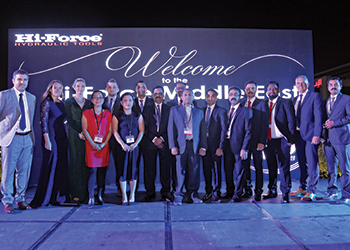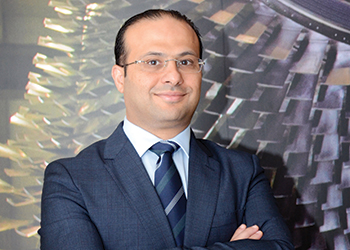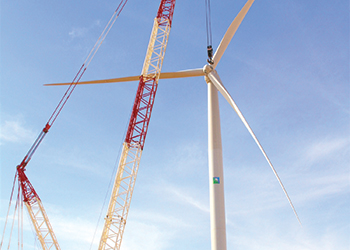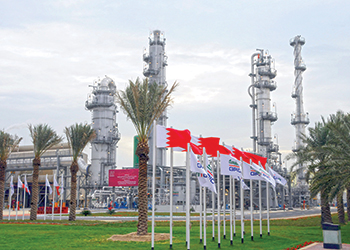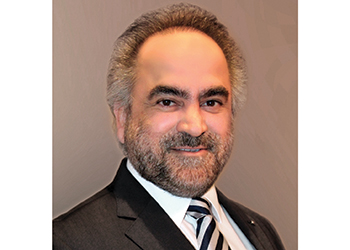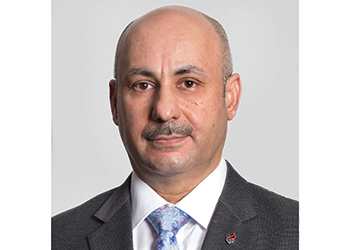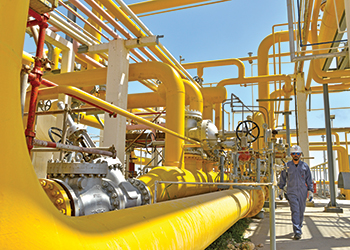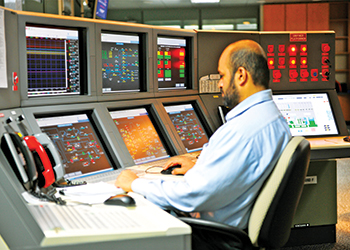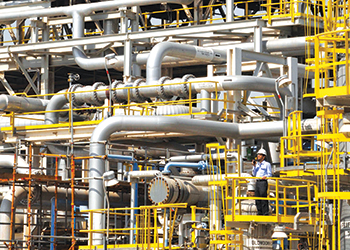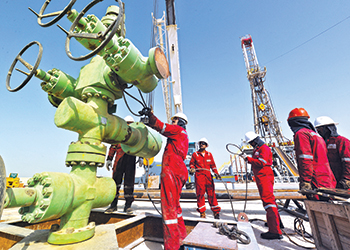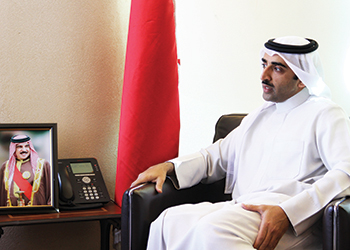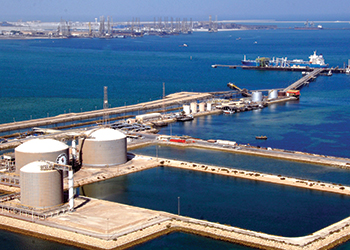
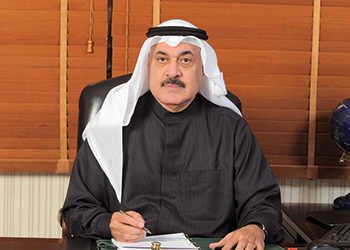 Dr Sheikh Mohamed ... achieving targets
Dr Sheikh Mohamed ... achieving targets
Despite the difficult market conditions brought about by the steep fall in oil prices, Banagas has responded well by reducing capital spending and aggressively cutting costs while moving forward with development projects that will improve production
The Bahrain National Gas Company (Banagas), which registered a turnover of $145.13 million in 2016 and successfully turned around projected losses into a net profit for the year, sees 2017 and 2018 as very challenging years for the company.
'The biggest challenge for Banagas in 2017 and the year after is to successfully complete our Expansion Project. This involves construction of a third gas plant (CGP-III) with 350 mmscfd capacity, double that of the current processing capacity, and expansion of our storage facilities together with all necessary supporting facilities.
'Every effort will be made to ensure this project is completed on time and to budget. Upon completion, Banagas will significantly increase production capacity and its contribution to the national economy as well as providing additional employment opportunities for Bahraini nationals,' says Dr Sheikh Mohamed Bin Khalifa Al-Khalifa, chief executive, Banagas.
Despite the difficult market conditions brought about by the steep fall in oil prices, Banagas has responded well by reducing capital spending and aggressively cutting costs while moving forward with development projects that will improve production without compromising the safety of the company’s employees and the integrity of its plant operations, Sheikh Mohamed tells OGN in an exclusive interview.
This response has resulted in a 21 per cent reduction in capital and operating expenses for the year. In addition, the company has significantly increased the frequency of its turnaround inspections to minimise the frequency of shutdowns and maintain production at optimum levels, he says.
Excerpts from the interview:
How were the operational and financial results for Banagas in 2016? Please give the company’s turnover, profits and revenue earned in 2016?
The dramatic drop in the price of oil, the largest decline our industry has experienced in years, from a peak of $115 per barrel in June 2014 to under $35 at the end of February 2016, has severely impacted the international market prices for LPG and Naphtha. In an effort to reduce this impact, the company successfully managed to produce a total of 3.7 million barrels of product, 2 per cent higher than the previous year. In addition we have managed to keep unplanned shutdowns to a minimum while working two million man-hours without a Lost Time Accident. Financially, our sales turnover reached $145.13 million and we were able to successfully turn around projected losses into a net profit for the year.
How did Banagas tackle the challenging year of 2016 when oil prices kept falling? And what is your market outlook for 2017? What are the major challenges that you will be facing over the next few years?
In light of the difficult market conditions, Banagas, with the support and encouragement of its Board of Directors and nogaholding, has responded to the fall in prices by reducing capital spending and aggressively cutting costs while moving forward with development projects that will improve production without compromising the safety of our employees and the integrity of our plant operations. This response has resulted in a 21 per cent reduction in capital and operating expenses for the year. In addition, the company has significantly increased the frequency of its turnaround inspections to minimise the frequency of shutdowns and maintain production at optimum levels.
.jpg) |
Signing the expansion deal with JGC |
As per market projections, we expect our product prices to marginally improve in 2017. However, that might not be sufficient to counter the many challenges faced by the company in 2017. These include an escalation in the price paid for gas and utilities, the need to continue funding the significant capital expenditure needed to modernise our plant facilities and the resources necessary to maintain the company’s excellent record in safety, health and environment.
The biggest challenge for Banagas in 2017 and the year after is to successfully complete our Expansion Project. This involves construction of a third gas plant (CGP-III) with 350 mmscfd capacity, double that of current processing capacity, and expansion of our storage facilities together with all necessary supporting facilities. Every effort will be made to ensure this project is completed on time and to budget. Upon completion, Banagas will significantly increase production capacity and its contribution to the national economy as well as providing additional employment opportunities for Bahraini nationals.
What is the current stage of Banagas’ Phase 2 expansion? Are the works proceeding as per schedule?
The contract was awarded to JGC Yokohama Japan on January 27, 2016 and work commenced on site by mid-May 2016. Levelling and grading is now complete and foundations for equipment in progress. Work is proceeding on schedule. As of the year-end, 80 per cent of engineering, 53 per cent of procurement and 14 per cent of construction activities have been completed. Overall progress of work is 44.2 per cent against the planned schedule of 41.6 per cent. This project will be 100 per cent owned by the Bahrain National Gas Expansion Company.
What is JGC’s scope of work on the pipeline and storage expansion at the Phase 2 augmentation?
The engineering, procurement and construction (EPC) contract for the pipelines and Sitra Storage expansion was awarded to JGC Gulf International of Saudi Arabia. The contract involves installation of a new pipeline system to transport gas from Tatweer Petroleum’s compressor stations to the CGP-III, a Pipeline system to return residue gas to the existing Tatweer reinjection header, Tie in to existing pipelines and a 21 km additional butane line from CGP-III to Sitra. The scope also include modifications to the Sitra Storage facility to accommodate the additional production. This includes installation of two additional storage tanks, one 200,000 barrels for propane and one 100,000 barrels for butane, addition of a new propane compressor train, new flare, fire water pumps, control room, switch room, land reclamation to accommodate the new equipment being installed and associated Instrument and electrical work.
Since the expansion is moving forward in anticipation of long-term supply of gas, what plans are in place to ensure adequate gas supplies?
Currently 350 mmscfd of associated gas is re-injected into the reservoir without processing. Tatweer Petroleum forecasts indicate that this volume of gas will be available even after 2029. However, there will be a slight decline in the production of LPG and naphtha over the lifetime of the project.
Tatweer will supply CGP-III with the required amount of associated gas through Incremental Associated Gas Processing.
What will be the biggest benefits from the expansion?
The new plant will recover high-value-added petroleum constituents (LPG and naphtha) contained in petroleum-entrained gas which have not been recovered in the past. By exporting recovered petroleum constituents as commercial products, the plant will contribute to the development of the oil and gas industry in Bahrain and generate additional revenue for the Government of Bahrain.
The project also will increase employment potential by generating additional jobs to man the new facilities.
What were some other new projects/contracts signed during the year? Please give details.
• MoU signed with the Electricity and Water Authority (EWA) for the power supply to CGP-III. A number of contracts have been signed with contractors and suppliers for the construction of a 66kv electrical substation on the site of the new gas plant to supply power to the new facilities;
• Finalised agreement with EWA for the supply of potable water;
• Initiation of a project to replace the GE Frame-3 Gas Turbine Modules and Control Systems at Compressor Stations 1, 3 and 4;
• Signing a contract for exchanging Ruston Gas Turbines at CGP-1 and CGP-2. These gas turbines, driving the refrigeration compressors, two each in CGP-1 and CGP-2, have been operating since 1979 and 1990 respectively. These turbines have outlived their design life and have to be replaced;
• Awarding of project for upgrade of Control Systems and starting system of the Ruston turbines of CGP-II;
• Maintenance contract renewal for Centum VP DCS. CGP-I has recently been upgraded from pneumatic control system to fully digital state of the art new generation DCS and ESD based control system supplied by Yokogawa. A comprehensive five (5) years maintenance contract, starting from Jan 2017 has been signed with Yokogawa;
• Completed installation of new firewater pumps; and
• Completed installation of additional flammable gas detectors.
What is your gas production and consumption forecast for the next years for Bahrain?
 |
Expansion work in progress at Banagas |
Average production from CGP-I/II for the next five years will be:
Propane: 3,900 bpd
Butane: 4,100 bpd
Naphtha: 4,800 bpd
Fuel gas consumption by CGP-I/II will be about 35 mmscfd.
Average production from CGP-III after commissioning in 2019 will be:
Propane: 3,700 bpd
Butane: 3,000 bpd
Naphtha: 5,700 bpd
Fuel gas consumption by CGP-III will be about 8.5 mmscfd.
What is your take on the pricing of gas supplied to the industrial sector? Do you think there is need for price revision taking into consideration the current economic situation?
In the GCC, the low gas prices, which are set considerably below international prices to encourage investment, have traditionally provided the region’s industrial sector a significant competitive advantage. Low prices allowed many LPG and petrochemicals companies to quickly capture a larger share of the global market, thus proving good financial returns to pay off capital investment. While abundant and cheap gas has played a critical role in the development and diversification of the economy, the current financial model is not sustainable as the cost of new gas production is continuously and significantly on the rise. According to Strategy & Booz (formerly Booz and Company) gas production costs increased from $1.50 to $4.50 per thousand cubic feet in 2015 and will increase to $7.00 per thousand cubic feet by 2030. Therefore, in a move in the right direction, many countries across the region, and Bahrain is one of them, have taken major and decisive steps to increase gas prices. I believe such price increases are fair and a reasonably sound market strategy considering that gas prices should accurately reflect the cost of supply and value of the gas to consumers.
However, I think there definitely should be a need for a price revision taking into consideration the current economic situation and therefore the need to adopt a gas pricing reform that should react to market fundamentals. However, the gas pricing structure should be carefully crafted through a mechanism that would place the GCC gas prices closer to its true value and somehow reflect the global and regional dynamics of supply and demand. Nonetheless, and as quoted by many gas pricing reviews, gas prices should follow a formula that is linked to either the crude oil index or an international/ local price gas hub. Either way, it will have adverse consequences on current and old consumers if not managed carefully. The formula should be flexible and targeted to capture the risk mitigation measures of gas prices increases vs. product prices decline to ensure that the benefits of the new pricing model are accepted by all parties.
What national, regional and international recognition has Banagas received during the last year? How does Banagas ensure quality in its operations? What have been your achievements in this regard?
HSE Awards Received by Banagas in 2016:
• Sector Award Winner for International Sector British Safety Council (BSC), UK;
• International Safety Award with 'Distinction' from the British Safety Council (BSC), UK;
• 'Highly Commended' Award for Industry Sector (Oil & Gas) from Royal Society for the Prevention of Accidents (RoSPA), UK;
• Guardian Angel Award for Hussain Ali (Operations Supervisor) from Royal Society for the Prevention of Accidents (RoSPA), UK;
• 1st Place International Safety Award from Gas Processors Association (GPA), USA;
• Occupational Safety Excellence Award from National Safety Council (NSC), USA; and
• Successfully completed Surveillance Audit for Integrated Management System (ISO 14001 and OHSAS 18001) by Bureau Veritas.
How does Banagas ensure quality in its operations?
Banagas follows all international standards in its operations and is benchmarked against international companies across its activities. In December the company Quality Management System was audited by BSI and recommended for Continued Quality certification and for transition to ISO2001:2015. Banagas is one of the first companies to be accredited to the new standard in Bahrain.
How is Banagas addressing environmental concerns associated with gas production?
Banagas addresses environmental concerns associated with gas production as follows:
• Empowerment of existing HSE policy and system;
• Strictly complying with OHSAS 18001 (Occupational Health and Safety Assessment Specification) and ISO 14001 (Environmental Management System) requirements;
• Bahrain Environmental regulations and standards are completely complied with in the design of all of our new facilities;
• As part of its obligation towards protecting the surrounding environment, Banagas has signed a 5 years Environmental Compliance Plan with Bahrain’s Supreme Council for the Environment in which actions to resolve all applicable environmental regulations are addressed;
• In order to meet Ministerial Order No. 10 of 2006 and as per our approved Environmental Compliance plan, a Continuous Emission Monitoring System (CEMS) has been installed at CGP-I and successfully commissioned; and
• Successfully organised Safety, Health and Environment Week on the theme 'Home Safety'.







































































